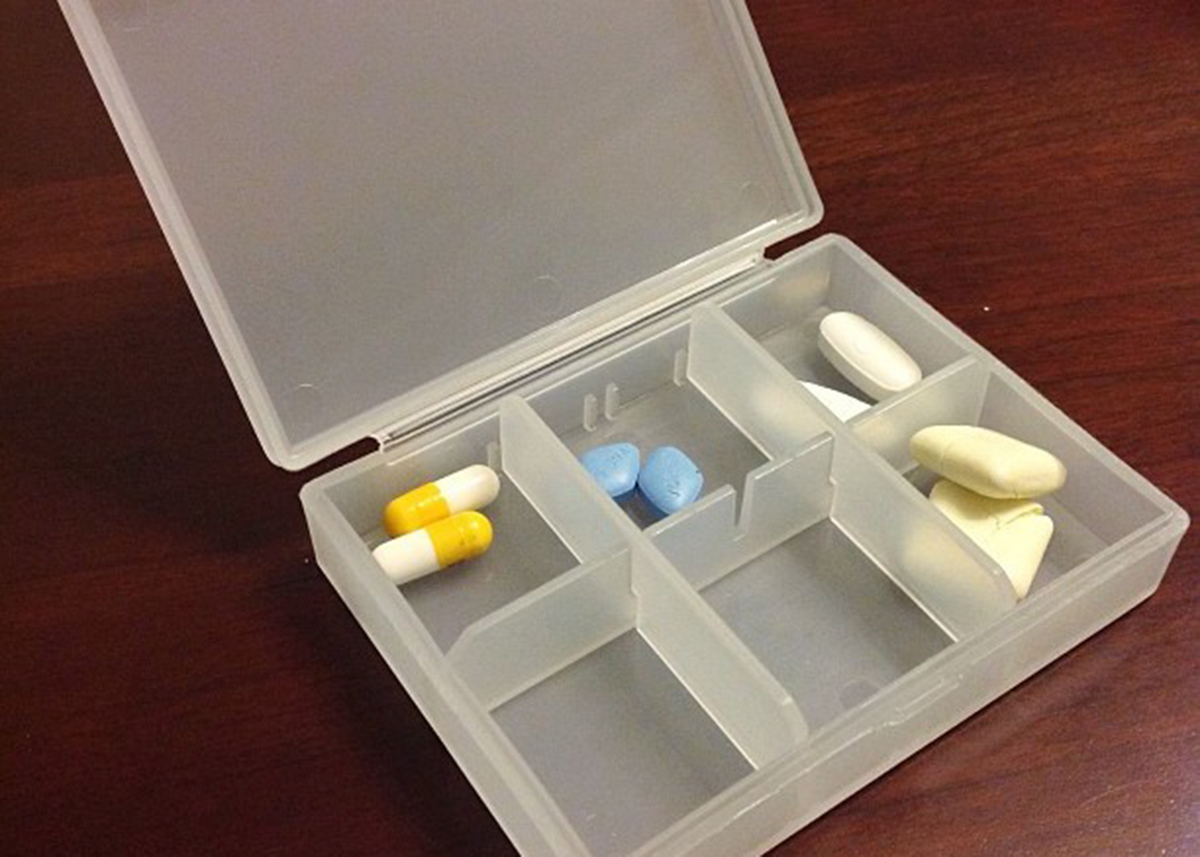Cardiovascular disease (heart disease) is the leading cause of death in the US. There are different types of heart disease, affecting around 80 million Americans, but the most common type that causes the most deaths is coronary artery disease, which often leads to heart attacks. Coronary artery disease affects about 13 million Americans, and of these, about one million suffer from heart attacks each year.

People with heart disease are often advised to modify their lifestyles, as part of their medical treatment. They are often asked to eat a healthy diet with fewer calories, fat and sugar, and to exercise with caution. Lifting or pushing heavy objects is often prohibited, and some restriction on doing chores such as raking and shoveling may be imposed. For some patients, climbing stairs or walking a short distance make them easily tired, and this makes them feel a little bit scared to do their usual activities. Because of these, people with heart disease are more cautious about the food they eat and the normal activities that can put stress on their heart.
Sex and Heart Disease
Among the common concerns of people with heart disease is their sex life. Some may be embarrassed to ask their doctors about it, but even their partners may be concerned. According to Glenn N. Levine, M.D., professor of medicine at Baylor College of Medicine in Houston, sexual activity is a major concern for both men and women with heart disease, since it plays a role in their quality of life.
Unfortunately, some patients are not able to carry on their normal sexual activities, not because of the heart disease, but because of anxiety and depression. They may be worried that the physical and emotional excitement associated with sex might trigger a heart attack. But AHA spokesman Vincent Bufalino, MD, a heart specialist, states that they encourage patients to stay physically, as well as sexually active, which makes them happier people. Experts also reveal that heart attacks rarely occur during sexual intercourse (less than 2%). If it does happen, studies show that men are more likely to be involved, especially when they are having an extramarital affair with a younger woman, while having sex in an unfamiliar place. This means that it is highly unlikely to happen in married couples, or people who are in a stable relationship.
Safety Precautions
Doctors do not forbid their patients with heart disease to have an active sex life, but they strongly urge them to wait until they are properly evaluated and stabilized, just as if they were returning to their usual routines. AHA volunteer Dr. Levine recommends that patients who are unstable and have severe symptoms of cardiovascular disease (such as chest pains) should be treated first before resuming sexual activity.
See Also: Sex Increases the Risk of Having a Heart Attack
Sex is like a cardiac workout, and if you can pass a stress test, climb stairs and walk for about six minutes on a treadmill, then you may be fit enough to do light jogging, play tennis and have sex.
Some Problems About Heart Disease And Sex
Aside from anxiety over making symptoms worse or having a heart attack while having sex, there are other concerns people with a heart condition face, which may affect their sex life. In many men who are taking medications for high blood pressure and heart disease, erectile dysfunction or impotence is a side effect that leads to frustration and depression. Patients who are experiencing sexual dysfunction possibly because of the heart medications they are taking must talk to their doctors about alternative treatments. However, you must not stop taking medications without talking to your healthcare provider first.

You should not take these type of drugs within 24 to 48 hours of using certain erectile dysfunction drugs. Again, it is best to talk to your doctor about drug interactions between those taken for treating heart disease and those used for treating impotence. Remember, however, that your heart health is a priority over your sex life.
Other factors associated with both heart disease and erectile dysfunction include obesity, high blood pressure, diabetes, and smoking habits. Quit smoking to improve heart health as well as erectile problems. Avoid heavy alcohol drinking, which can affect both the heart and your sex life. Eat a healthy diet to improve weight and other obesity-related health problems to improve both your heart condition and sex life.
In women, getting pregnant may be a concern if they have heart problems. They should talk to their doctors if they are planning to get pregnant or if they wish to use birth control to avoid getting pregnant.
Post-menopausal women with heart disease can safely to use hormones like estrogen for topically use for treating vaginal dryness and painful intercourse.
It is common for people who have a chronic disease such as heart disease and diabetes to be severely depressed. Some doctors prescribe antidepressants to these patients, which sometimes leads to reduced sexual desire and function. Ask your doctor about having psychotherapy for depression and sexual dysfunction.
Cardiac rehabilitation after a heart attack can help patients gradually go back to their daily routines.
Regular exercise can increase your strength and stamina, and can reduce the demands on the heart during sex. A sedentary lifestyle increases your risk of a heart attack, so try to get some physical activity if you can, as long as you are stable – that is, you do not experience chest pains, easy fatigue or difficulty breathing with normal activities of daily living.
See Also: Statins, Cholesterol-Lowering Class of Drugs, Lower Male Sex Drive, Too
If you have undergone a surgical procedure such as angioplasty and cardiac stenting or bypass surgery, wait until your surgical wounds heal before resuming sexual activity.
Signs that suggest your can resume normal sexual activity include your ability to exert enough energy to do a stationary bike exercise or walk at a comfortable pace without experiencing angina (chest pain) or excessive breathlessness. Clinical evaluation should also show that these simple activities do not result in ECG changes that show a lack of oxygen to the heart muscles, irregularities in heart rhythm, or rises in blood pressure.
- WebMD. Is there sex after heart disease? http://www.webmd.com/heart-disease/features/is-there-sex-after-heart-disease
- AHA. Sexual activity is safe for most heart patients. http://newsroom.heart.org/news/sexual-activity-is-safe-for-most-221740
- WebMD. Safe Exercise for Heart Disease Patients. http://www.webmd.com/heart-disease/guide/safe-exercise-patients
- AHA. Sex and Heart Disease. http://www.heart.org/HEARTORG/Conditions/More/MyHeartandStrokeNews/Sex-and-Heart-Disease_UCM_436414_Article.jsp
- Photo courtesy of Jon Seidman by Flickr : www.flickr.com/photos/jonseidman1988/4716708042
- Photo courtesy of See-ming Lee by Flickr : www.flickr.com/photos/seeminglee/8238515586
- www.webmd.com
- www.heart.org


Your thoughts on this